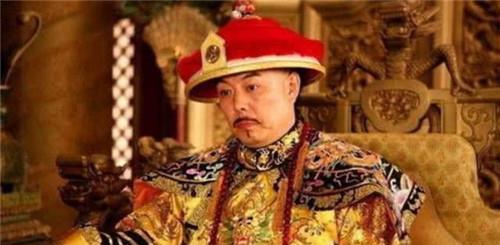China's feudal dynasty lasted for more than two thousand years, and the emperors of successive dynasties have taken many measures to strengthen the central group, but the centralization of feudal society has developed until the Qing Dynasty, and it has really reached its peak; then the prosperity and decline, and the Taiping dynasty is devastated in the blink of an eye.

The strict mendi hierarchy was a major manifestation of the feudal centralization of the Qing Dynasty. The Qing Dynasty was the most honorable of the Manchu nobles, followed by the Mongol nobles. The reason why the Mongol nobles were able to occupy a place in the Qing Dynasty was mainly because when the Qing army entered the customs, it relied on the strength of the Mongolian iron horse. You can look at the harems of several emperors in the early Qing Dynasty, basically all of them are Mongolian noblewomen, and there are several empresses in the Borjigit clan alone.
When the Qing Dynasty gained a foothold in the Central Plains, the Mongols were no longer their dependence, but became the jackals around the Side of the Qing Dynasty, and the Qing Dynasty harems after that rarely saw Mongolian women, basically the world of Manchu noble women. There are also Han Chinese women, but even if they are favored, it is difficult to ascend to the highest position.
For example, it is now recognized that Qianlong's "true love" Wei Yongluo prototype Empress Xiaoyi Chun, even if she defeated all her opponents, she could only be an imperial concubine when she was alive, and as for the empress's nickname, it was Qianlong sixty years, and it was determined that the fifteenth brother Yongyan would inherit the unification before giving her the title of empress dowager.
It is so difficult to produce a Han empress, or when the son becomes emperor, he can only be posthumously awarded; that as a Han person, as a courtier, there is only one person, that is, Zhang Tingyu, a heavy minister in the middle of the Qing Dynasty, the first assistant and chief military minister of the Cabinet during the Kangxi Emperor period, Zhang Tingyu. The Taimiao Temple is a treatment that only the ancient emperors and some of the more famous clan relatives can enjoy, and it is a great honor to be able to enjoy the Taimiao temple as a courtier.
Although Zhang Tingyu's Zhang family in Tongcheng, Anhui Province, although not a Manchu Qing nobleman, has also gained the prominence of "wearing the top of the family and full of zhu zi", it is said that the status of the Zhejiang Cao family, which is the prototype of "Dream of the Red Chamber", the Zhejiang Cao family who served as a Weaver in Jiangning, is even higher. The most famous and accomplished person in the Zhang family is Zhang Tingyu, but his fame has quite a lot of twists and turns, and in some ways it can be regarded as stepping on the status of his father Zhang Ying to ascend to the throne.
Zhang Yingguan zhi Libu Shangshu was one of the six heads of the ministry, and the official Worship Yipin was already a heavy minister among the heavy ministers. In the year when Zhang Ying was 60 years old, that is, in 1697 AD, he accepted the appointment of the main examiner of the imperial examination. Becoming an examiner means that all the people who participate in the examination are his protégés, and in ancient times, the ministers who paid great attention to the relationship between master and apprentice, and the ministers who had the relationship between master and apprentice, would be naturally divided into a faction in the court.
For other ministers, this incident can be regarded as a great joy, but for the Zhang family, it is a "disaster". Because there was a rule in the ancient imperial examination, in order to avoid cheating, the immediate family members of any examiner could not participate in the imperial examination, and Zhang Yingna's 26-year-old son Zhang Tingyu took the examination.
Our current college entrance examination is called a "simplified version" of the imperial examination, which can be taken every year, and the admission rate is much higher than that of the imperial examination, even so, if anyone's child's college entrance examination is delayed for a year, it will make the whole family feel sad, and the Ming and Qing examinations are only once in three years.
Zhang Tingyu's dismal absence from the exam became a pain in Zhang Ying's heart, and after proctoring the exam, Zhang Ying resigned from the Hanlin Academy and the affairs of the Zhan Shi Mansion on the pretext of old age. The Kangxi Emperor was well aware of the reason for Zhang Ying's resignation, but he really did not want him, so he promoted him to the position of Xiang after 2 years, and also appointed him as a scholar of Wenhuadian University, while continuing to retain his position as Libu Shangshu, but no longer allowing him to proctor the examination.
Another year later, in 1700 AD, Zhang Tingyu passed the examination in one fell swoop, was awarded the title of Shu Jishi and entered the Hanlin Temple, and from then on began to succeed his father Zhang Ying and maintain the glory of the Zhang family.